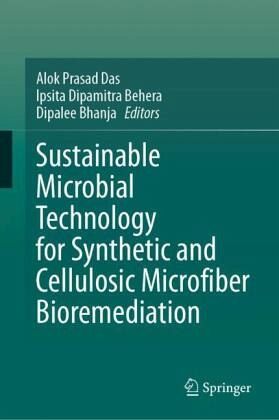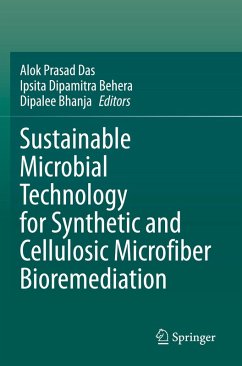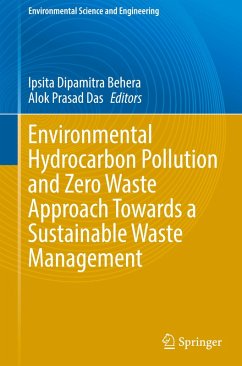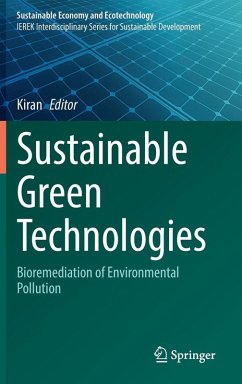
Sustainable Microbial Technology for Synthetic and Cellulosic Microfiber Bioremediation

PAYBACK Punkte
68 °P sammeln!
This book offers a variety of cases that detail microbial technologies for remediation of microfiber pollution. Synthetic microfibers are made up of polypropylene, nylon, and polyethylene terephthalate. They are porous and dry which makes them ideal for cleaning, but wide use of synthetic microfibers across industries and the human population in general has led to the accumulation of microfiber wastes in both terrestrial and marine ecosystems.Microfibers are a major environmental pollutant due to their endurance, omnipresence, and synthetic composition. Due to their undetectable size and wide ...
This book offers a variety of cases that detail microbial technologies for remediation of microfiber pollution. Synthetic microfibers are made up of polypropylene, nylon, and polyethylene terephthalate. They are porous and dry which makes them ideal for cleaning, but wide use of synthetic microfibers across industries and the human population in general has led to the accumulation of microfiber wastes in both terrestrial and marine ecosystems.
Microfibers are a major environmental pollutant due to their endurance, omnipresence, and synthetic composition. Due to their undetectable size and wide distribution, microfibers slowly get incorporated within the food chain leading them into the higher trophic level. Microbial remediation of Synthetic microfibers through biodegradation is a sustainable and economic solution. With advanced bioremediation technology, novel methods have been developed for remediation, recovery, and recycling. Some of these methods are detailed in this volume.
Microfibers are a major environmental pollutant due to their endurance, omnipresence, and synthetic composition. Due to their undetectable size and wide distribution, microfibers slowly get incorporated within the food chain leading them into the higher trophic level. Microbial remediation of Synthetic microfibers through biodegradation is a sustainable and economic solution. With advanced bioremediation technology, novel methods have been developed for remediation, recovery, and recycling. Some of these methods are detailed in this volume.












